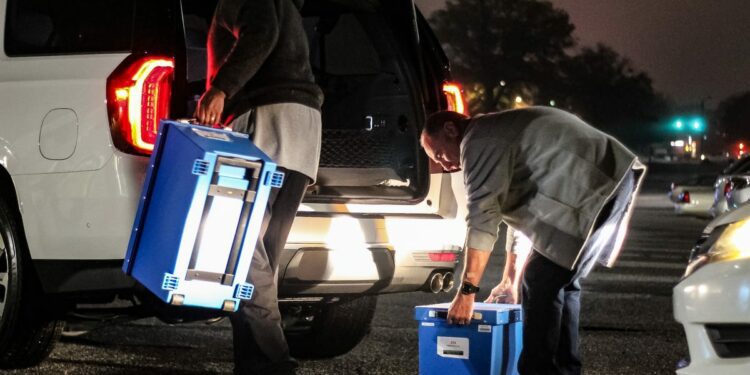More: ‘Jubilation’: South Carolina Republicans dominate federal, state and local races
Flipped seats create supermajority
The state also saw the entire statehouse up for election. On Tuesday, the GOP flipped four seats in the state senate, granting it a Republican supermajority. ┬а
тАЬToday, Palmetto State residents voted to send four new Republican Senators to Columbia, affirming that the values of safe communities, fiscal responsibility, family integrity, and educational freedom resonate with South Carolinians,тАЭ Senate Majority Leader Shane Massey said in a statement. тАЬThe Senate Republican Caucus strategically invested in strong candidates and succeeded in creating competitive races, even in traditionally Democratic districts. I look forward to working alongside these new Senators to champion conservative victories that make South Carolina an even better place to live, work, and raise a family.”
‘Only’ a citizen can vote┬а
Statewide, voters accepted a constitutional amendment that will change Section 4, Article II of the South Carolina Constitution, mandating that тАЬonlyтАЭ a citizen can vote.┬а
Greenville GOP chairwoman Yvonne Julian said the constitutional amendment would act as an тАЬadditional safeguard against people voting illegally.тАЭ┬а
тАЬIt is sad to say that there are people in the country who want that to happen,тАЭ Julian said.┬а┬а
It is already illegal for a noncitizen to vote, and there is no evidence that noncitizens are voting in South Carolina.┬а
The amendment passed by a broad majority. With approximately 98% of counties reporting, more than 85% of voters approved the measure.┬а
South Carolina was not alone in approving the measure. Seven states had similar measures on the ballot that all passed, including North Carolina.┬а
Critics say the amendment was unnecessary as it is already illegal to vote as a noncitizen in South Carolina and have concerns that the amendment could lead to voter suppression, such as passing laws requiring to show proof of citizenship through a passport or birth certificate.
Infrastructure solution will challenge new council
Locally, Anderson and Greenville counties rejected measures that would raise local sales taxes to pay for road improvements.┬а
In Greenville, the motion failed by three percentage points.┬аThe proposed increase would have raised the local sales tax in Greenville County from 6% to 7% to pay for road improvements.
Republican Liz Seman, who soundly defeated Constitution Party challenger John Langville on Tuesday, said the close margin further shows that the тАЬmessage is infrastructure is important.тАЭ┬а
тАЬWe certainly hear all the time that infrastructure is a challenge, and so that will be something the new council will have to face come January,тАЭ Seman said.┬а
In January, four new councilmen will join Greenville County Council after defeating three incumbents in the June primary.┬аFrank Farmer, who won the GOP nomination for Greenville County Council District 22 after Councilman Stan Tzouvelekas opted for a statehouse run, defeated Democrat challenger Karine Debaty.┬а
Greenville County residents are also generally opposed to new taxes as proven by the ousting of the three incumbents, Butch Kirven, Chris Harrison and Mike Barnes, who all voted to increase property taxes last August.
Greenville County Councilmembers-elect Garey Collins, Curt McGahhey and Kelly Long were all unopposed in the general election and all ran on campaigns opposing the tax increase.
All four of the newly elected council members opposed the penny sales tax and came out against it in July.
As it stands, only 28 to 32 county roads can be paved each year despite owning 1,800 miles of roads. Roads are deteriorating, county staff Tee Coker and Hesha Gamble said more than a year ago. The problem is only expected to worsen as more people move to the county.
It remains unanswered how Greenville County will work on improving roads. Some councilmen have suggested in the past that the solution relies on increasing funds from the budget to improve roads.
The county spends about $78 million per year on roads. This includes several funding methods, such as the state’s Department of Transportation contributing $27 million and the state gas taxes supplying $4 million. Greenville County commits $12 million from its annual budget.
The South Carolina chapter of Americans for Prosperity said in a statement it was тАЬglad to see the burden to improve state infrastructure will not be put on South Carolinians as Greenville already receives millions of dollars in transportation revenue that could and should be used for road repairs.тАЭ┬а
тАЬWe want to promote policies that ensure families are keeping more of their hard-earned money by flattening the tax code over time, not covering the governmentтАЩs bill for roadway expenses, and todayтАЩs decision was a promising step in the right direction,тАЭ said Candace Carroll, the organization’s director of public affairs.
In Anderson County, the measure failed by seven percentage points. It would have raised $366 million for road improvements.
Savannah Moss covers SC government/politics for the Greenville News. Reach her at [email protected] or @savmoss on X.
Source link : http://www.bing.com/news/apiclick.aspx?ref=FexRss&aid=&tid=672db177650746adaf65cbcf3074ce95&url=https%3A%2F%2Fwww.tennessean.com%2Fstory%2Fnews%2Fpolitics%2Felections%2F2024%2F11%2F07%2Fwhat-do-south-carolina-election-results-mean-heres-a-closer-look%2F76095356007%2F&c=7622338832681505971&mkt=en-us
Author :
Publish date : 2024-11-07 09:44:00
Copyright for syndicated content belongs to the linked Source.










